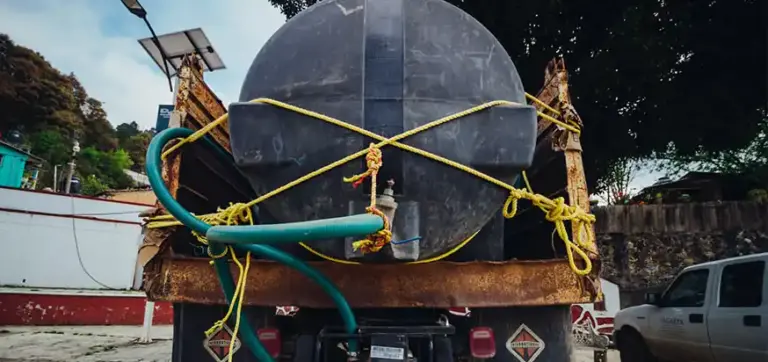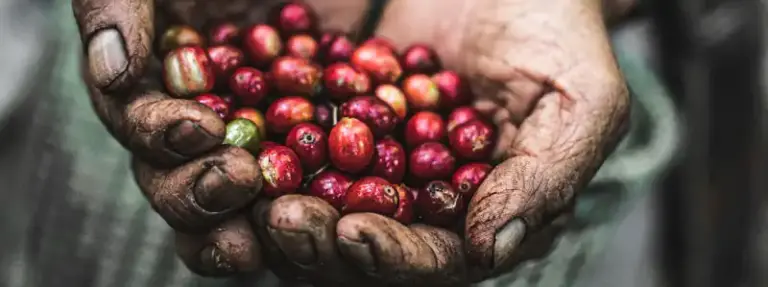In terms of profits, wealthy chefs have an advantage. They can use their platforms and restaurants to reach a larger market. Whether modify or not the recipes, but overall, when they claim ownership, there’s a political disconnection. The appropriator becomes a reference to that recipe and invisibilizes the groups who own it.
We live in a world where inequality is still a big issue, and cultural appropriation is a medium to maintain it. Though, are there other alternatives?
A few weeks ago, the Lost in Mexico podcast released an episode about Cultural Appropriation in Food. Nita, Kiran, and I discussed this matter. The first episode covered interviews with millionaire white chefs and their takes on the topic. For the second part, there was a different perspective from other voices that don’t agree with them, myself included.
One of the aspects I find relevant is the acknowledgment and privileges addressing. To grant them for some people, they come at a price: Taking them from others. But why is this relevant to this subject? Because of power dynamics.
What is Cultural Appropriation?
Cultural appropriation happens when an external agent, from a dominant culture, takes an element from an oppressed culture without properly honoring the extracted value to the original owners.
Often, people confuse it with cultural assimilation or cultural exchange. It’s here when the dominance of culture comes into place.
We need to think in two dimensions, globally and historically. European countries started with modern colonialism in Africa and later in America and Asia, oppressing the native people, taking resources, and stealing the land. Colonialism finished progressively when the colonies claimed their independencies and became their own countries. However, these declarations were more of a transition to a new sub-system of dominance; migrant Europeans and their descendants in the colonies kept power over the native people. Later on, trade policies and ownership/concession of natural resources by foreign corporations. With the rise of new economic powers like the US, Canada, The Netherlands or Switzerland and their intervention in international affairs to perpetuate extractivism, neocolonialism was born.
There are two levels of dominance, countries that have been hoarding resources extracted from other regions. A less talked about form of colonialism is within countries, when they extract resources domestically from indigenous territory and cultures. Today, Europe and countries like the UK, Canada, and the US are still extracting resources from the once colonies. Though, the extraction is not only material but epistemic.
Cultural exchange happens when an element passes from one culture to another via the members of both parties. In gastronomic terms, Tacos al Pastor are a great example. Lebanese migration waves to Puebla in Mexico brought their famous Shawarma in the 1920s. Then the dish started evolving with local ingredients, cooks and businesses started doing their modifications and became a dish that is part of regional gastronomy and collective ownership.
Even under colonialist contexts, this is possible. Mole is another example. A prehispanic dish that received ingredients influence from the colonization like sesame seeds, almonds, and chicken (just to mention some), and then it evolved throughout centuries to become a dish that culturally represents regions and towns in the center and south of Mexico.
Social Implications
The extraction of cultural elements to reuse them without proper retribution responds to the continuity of domination of cultures and nations. Cultural appropriation is a symptom of the ongoing theft, and structures and systems like racism and capitalism support it.
The erasure of cultures is a process that colonizers have done to gain ownership of the invaded land. There are two ways they have done this. The first one is segregation; after the domination of the culture, the newcomers set reservations where the native people can live, segregated from the newly formed society. Canada and the US are good examples. The second way is assimilation. Instead of secluding them, they are integrated into the new society; under a discourse of a brand new mixed “race”. Mexico and Colombia are good examples. In Spanish, this process is called mestizaje: the union of two races* to create a new one.
Within Mexico, there are more than sixty nations, with their languages and traditions. They are alive and still exist today. But the concept of mestizaje puts them together in this single category defined by the state: Indigenous. Thus, Indigenous + Spanish = Mestizo/a, and Mestizo is the foundation of the modern Mexican identity.
Mestizaje aims to exclude nations like Zapoteca, Mixteca, or Chontal, from the narrative of what Mexico is. By placing them all in a single group. To affirm that Tetelas are a Mexican dish, invisibilizes its Mixteca origin. This context is relevant to frame the appropriation and understand that whether domestic and foreign agents can perform it.
Profit Someone else's Recipe?
The social and economic structures facilitate that people from certain groups get more exposure than others. In the last years, thanks to the social media and smartphone boom, Black, Indigenous & People of Color (BIPOC) have access to self-publishing platforms. In terms of who tells the stories, this is great because they are creating their content and narratives.
In terms of profits, wealthy chefs have an advantage. They can use their platforms and restaurants to reach a larger market. Whether modify or not the recipes, but overall, when they claim ownership, there’s a political disconnection. The appropriator becomes a reference to that recipe and invisibilizes the groups who own it.
I find this problematic because their customers and audiences are not necessarily aware (nor care) about these dynamics. Their clients are looking for a specific kind of experience, and when they consume it from chefs, they’ll get the credit. And if we go one step beyond, even if the chef recognizes the authorship under a label like Mexican Food, it’s still erasing other identities that do not necessarily ascribe to Mexican, even if they are physically inside the territory that is Mexico. What if they identify themselves as something else? Mexican nationality as agglutinant can be violent towards sovereignties that have the right of recognition.
The epistemic extraction and colonial structures have been actively wiping indigenous traditions and languages for centuries. I consider that it is the responsibility of the extractor to understand and help raise awareness about these problems. I find it irresponsible to profit with knowledge, but not relating to whom you take it from. Doing so contributes to the gear that aims to homogenize populations under a nationalist discourse.
Are Other Realities Possible?
It seems that appropriation practices are not going to stop soon. Though, can we transform them into more valuable ones? Some ideas for a better scenario are:
- Credits Attribution. Clearly and loudly. Nothing speaks louder than transparency.
- Royalties Payment. Accordingly. In unequal economies like Mexican, where haggling and low payments to BIPOC are normalized, Paying the royalties in a global economy pricing would be fair.
- Creating honest and solid bonds with the region/community/people from whom they took the inspiration. Communication and needs heard from both sides can result in benefits for both parties.
- Build community. I do believe that converting cultural appropriation into cultural exchange is possible. Through acknowledging the systemic problems and holding accountability, responsible addressing would flow more easily.
More deep knowledge of the issues the people are facing or struggling with is beneficial. Helping to amplify the messages that are difficult to communicate would be highly appreciated. It’s not uncommon that the oppressed groups suffer from problems like racism, discrimination, land and water dispossession, death threats, and language erasing.
If someone with more wealth, seconds to denunciate those problems, it would help to communicate the message more efficiently. It would also help to reduce the otherness gap that has been built for centuries.
I believe so, other realities are possible.
Notes / References
Reading time: 6 minutes
* The concept of race is political, not biological.
- https://open.spotify.com/episode/4TF5Dbh3HoBKoBX6Y5rxLX?si=75224c0872fe46f0
- https://elpais.com/mexico/opinion/2020-08-23/tojkx-de-cocineros-a-chefs-o-la-obsesion-por-la-autoria.html
- https://www.revistadelauniversidad.mx/articles/9697b7cd-80bb-44b3-95d3-571d5d3c32d5/dinamicas-comunitarias-de-la-identidad-textil
- https://en.wikipedia.org/wiki/Akara
- https://en.wikipedia.org/wiki/List_of_Indian_reserves_in_Canada
- https://www.npr.org/2021/05/29/1001566509/the-remains-of-215-indigenous-children-have-been-found-at-a-former-school-in-can
- https://www.commondreams.org/news/2020/06/19/shell-must-not-get-away-niger-delta-still-waiting-big-oil-clean-devastating
- https://www.theguardian.com/global/2018/oct/04/ontario-six-nations-nestle-running-water
- https://www.nomadcook.org/human-stories-migrant-caravan





